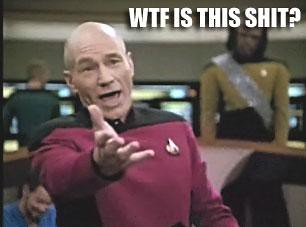Okay - let me start off by saying I'm NOT a competitive player; I almost don't feel qualified to ask questions, let alone contribute to the discussion. All I've really got going for me is that I've been around for a long, long time - so if I'm asking dumb questions, be nice about telling me so.

If I'm understanding you correctly, your argument is that Halo (the first one) is the last game where individual skill was more important than the ability to work as a team. (I'm not suggesting that the ability to be a team player isn't a skill - I'm trying to summarize your overall point, that Halo allowed individual skill to shine and gave greater depth to team play than later games did.)
The part I don't get, then, is why the early competitive winners were so quickly eclipsed when Halo 2 came out.
If you look at the early days of competitive gaming (first national championship was in 2002, AGP was pretty active in 2003, MLG kicked off that year), you'll see names like HP Darkman, StrangePurple, Zyos. They dominated at the start (especially when they teamed up to form The Dream Team) - but soon after Halo 2 came out, they ALL faded away. It's like they couldn't adapt to the new game (though the Ogres and Walshy, who'd all been around in 2003, had no trouble doing so).
So if a group of guys could dominate the competitive scene, both individually and as a team, when the game was DEEPER, and rewarded individual play more... why wouldn't they dominate even MORE in a game that became less deep? (Zyos kept playing FFAs through 2006, and then dropped out of professional gaming, but he stopped playing team games in 2005, and the rest of the Dream Team was gone in 2004.)
Part of the answer might be as simple as "the competitive scene wasn't big enough to support them and they went back to school" - the first real contracts weren't signed until mid-2006. But I don't think that's all of it. To me, as an outsider (to the competitive scene), it seemed that players that were BETTER individually (in Halo) had more trouble adapting to the team dynamics of Halo 2 - it's not that Halo's team play is deeper, it's that Halo's team dynamics are LESS important than the individual skills of the members of the team. (That is: four great FFA players could easily dominate in Halo team play - but 4 great Halo 2 FFA players wouldn't necessarily dominate in Halo 2 team play.)
I guess, for me, it boils down to "Team playing is a different skill than solo playing, and its importance was greatly diminished in the first Halo, compared to later games."
Tying this back to your original argument, it seems we agree... to a point. Individual skill is MORE important in Halo than in Halo 2. Where we seem to diverge is that you are suggesting that higher individual skill will necessarily lead to higher team skill... and I'm suggesting that there's not really a correlation (at least in the first game). I will ABSOLUTELY agree that in Halo 2 and 3, teams with greater-skilled players dominated, and I will agree that in the early days of Reach, wins were more unpredictable because there WAS a greater 'random' factor - one that MLG removed over time, leading to fewer upsets and more predictable outcomes. But what I don't see is a greater 'depth' in Halo gameplay that comes from individual skill - what I see is that individual skill level was far more important than the ability to work together as a team. To me... that's LESS depth.
Wow, I didn't expect this to be that long. And now I'm late for a meeting.










